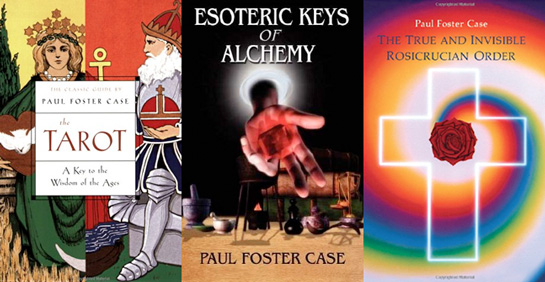Paul Foster Case was born in Fairport, New York. His mother was a teacher and his father was the head librarian of the town library, in which Paul Case was literally born. For a man whose thirst for hidden knowledge was unquenchable, he could not have been born into more fortunate circumstances. Paul learned to read at a very young age. By the age of four he was found pouring over “forbidden books” in the attic of his father’s library. He was also found to have extraordinary musical talent at an early age, and at the age of three began training in piano and organ. At the age of nine, he was the organist at the Congregational Church in which his father was deacon. At the age of seven, Case began correspondence with Rudyard Kipling, who verified the “fourth-dimensional” experiences Case was having as being not merely imaginary, but actual states of being. At this early age, Case found that he had the ability to consciously manipulate his dreams. At sixteen, Case met the occultist Claude Bragdon, as they had both donated their talents to a charity performance. It was in this meeting that Paul Case got his first “directive”. Bragdon asked Case, “Where do you think the playing cards come from?” This simple question sparked an immediate search for the origins and uses of Tarot.
Within a very short period of time, Case had collected every book and every set of Tarot Keys available. He spent years researching, studying, and meditating on these archetypal images.Case described his experience at the time as definitely “guided” by an inner voice. In his view, the experience with Tarot had stimulated an “inner hearing”, through which he was guided to the many attributes of Tarot which were published before he was 21 years old. Perhaps Eliphas Levi’s statement on Tarot best summarized its influence on the young Paul Case: “As an erudite Kabalistic book… A prisoner devoid of books, had he only a Tarot of which he knew how to make use, could in a few years acquire a universal science, and converse with unequaled doctrine and inexhaustible eloquence.”……..


 RSS FEED
RSS FEED FACEBOOK
FACEBOOK TWIITER
TWIITER TUMBLR
TUMBLR